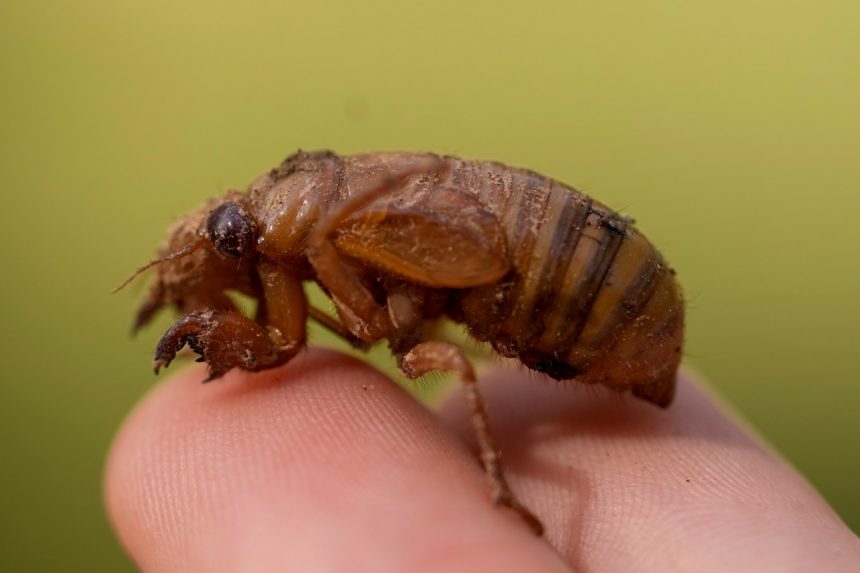
ST. LOUIS – As cicada season ramps up in the St. Louis region, there are some interesting questions that people may have about how they affect our daily lives.
Let’s consider a scenario where a cicada lands on you. Can it bite you? Can it pee on you?
Although both of these scenarios may sound unpleasant, it’s important to note that there is not much harm associated with either situation.
Here is what FOX 2 has learned based on research and expert accounts.
Can a cicada bite you?
Short answer: No, not really.
Even though cicadas have piercing mouthparts, they are specifically designed for feeding on trees, according to SLU associate professor Dr. Kasey Fowler-Finn, Ph.D. Cicadas use their mouthparts to extract fluids from trees.
However, if a cicada stays in contact with a human’s skin for a prolonged period, there is a chance it might mistake the skin for a tree part, as per the Orkin Pest Control Company. If the cicada attempts to pierce your skin, you may feel a slight, tingling sensation that resembles a bite. Generally, this sensation is short-lived and unlikely to cause irritation like mosquito bites.
Furthermore, cicadas do not have stingers, so they are incapable of stinging humans.
Can a cicada pee on you?
Short answer: Yes.
Cicadas consume plant parts with high water content, leading them to excrete waste in the form of urine. According to the New York Times, cicadas can ingest 300 times their weight in plant sap daily and excrete up to 10 feet of fluid per second.
As reported by the Associated Press, cicadas release a substance called “honeydew” and can pee up to three times stronger and faster than humans. It may be sticky, but it is not toxic.
If you come into contact with a cicada or are near groups of them, they may inadvertently sprinkle urine on you, possibly in droplets. If this occurs and you need to clean up, a simple mixture of water and soap should suffice.
In the grand scheme of things, while it may be bothersome for humans to experience a bite-like sensation or to encounter cicada urine, experts confirm that both situations are harmless in the long run.











